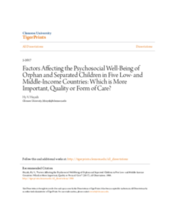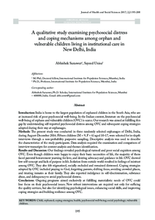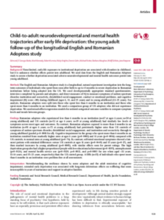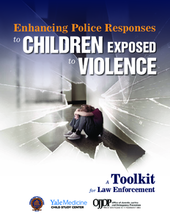Displaying 281 - 290 of 496
The goal of this study is to analyze, from the adoptee's point of view, the experience of being adopted in the school context and the impact of the child's social competence, social disclosure of adoption and social reaction to the adoptive status.
The present study investigates the relationships among children's history of maltreatment, attachment patterns, and behavior problems in Japanese institutionalized children.
This study investigated the relationship between quality of child care and social-emotional development in 2- to 3-year old children in the Netherlands.
This article describes and evaluates a model utilizing Child-Parent Psychotherapy (CPP) to minimize the impact of early trauma for infants and toddlers removed from parental care.
The aim of this study was to compare outcomes for children living in three different types of care in Chile: biological parental care, residential care, and foster care.
This study explored the extent to which components of quality of care predicted psychosocial well-being of orphaned and separated children (OSC), as well as the extent to which these components of quality of care and demographic factors moderated the associations between care settings and psychosocial well-being of orphaned and separated children (OSC).
This study investigated the psychosocial distress and coping mechanisms of institutionalized children living in New Delhi, India.
This study used data from the English and Romanian Adoptees study to assess whether deprivation-associated adverse neurodevelopmental and mental health outcomes persist into young adulthood.
This book presents the "Circle of Security" parenting strategies developed by Kent Hoffman, Glen Cooper, and Bert Powell in a "self-help" form.
This new toolkit provides practical tools and resources to assist law enforcement agencies in building or enhancing effective operational responses to children exposed to violence (with or without a mental health partner). This toolkit contains tools targeted to police leaders and frontline officers.




